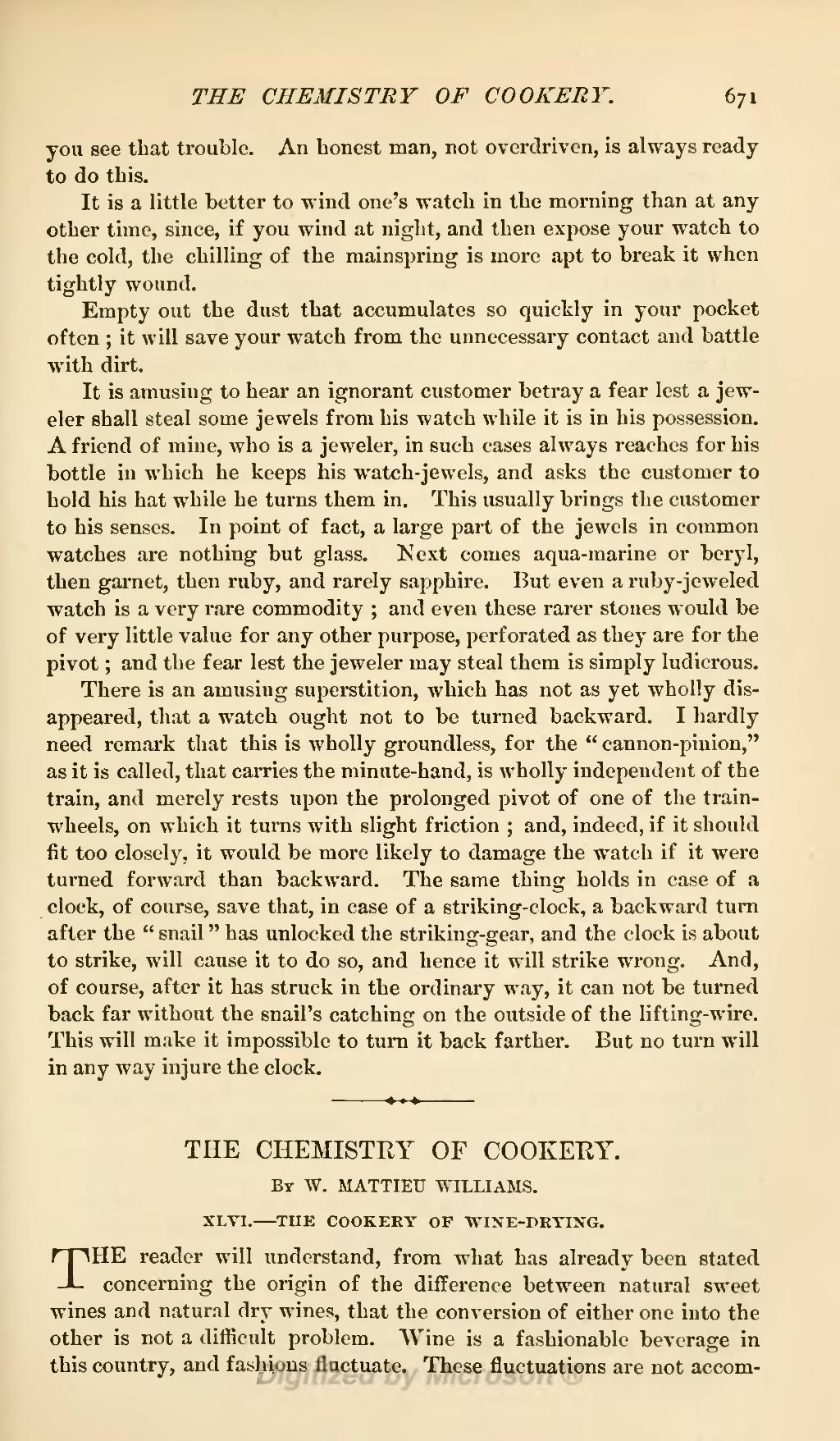you see that trouble. An honest man, not overdriven, is always ready to do this.
It is a little better to wind one's watch in the morning than at any other time, since, if you wind at night, and then expose your watch to the cold, the chilling of the mainspring is more apt to break it when tightly wound.
Empty out the dust that accumulates so quickly in your pocket often; it will save your watch from the unnecessary contact and battle with dirt.
It is amusing to hear an ignorant customer betray a fear lest a jeweler shall steal some jewels from his watch while it is in his possession. A friend of mine, who is a jeweler, in such cases always reaches for his bottle in which he keeps his watch-jewels, and asks the customer to hold his hat while he turns them in. This usually brings the customer to his senses. In point of fact, a large part of the jewels in common watches are nothing but glass. Next comes aquamarine or beryl, then garnet, then ruby, and rarely sapphire. But even a ruby-jeweled watch is a very rare commodity; and even these rarer stones would be of very little value for any other purpose, perforated as they are for the pivot; and the fear lest the jeweler may steal them is simply ludicrous.
There is an amusing superstition, which has not as yet wholly disappeared, that a watch ought not to be turned backward. I hardly need remark that this is wholly groundless, for the "cannon-pinion," as it is called, that carries the minute-hand, is wholly independent of the train, and merely rests upon the prolonged pivot of one of the train-wheels, on which it turns with slight friction; and, indeed, if it should fit too closely, it would be more likely to damage the watch if it were turned forward than backward. The same thing holds in case of a clock, of course, save that, in case of a striking-clock, a backward turn after the "snail" has unlocked the striking-gear, and the clock is about to strike, will cause it to do so, and hence it will strike wrong. And, of course, after it has struck in the ordinary way, it can not be turned back far without the snail's catching on the outside of the lifting-wire. This will make it impossible to turn it back farther. But no turn will in any way injure the clock.
| THE CHEMISTRY OF COOKERY. |
By W. MATTIEU WILLIAMS.
XLVI.—THE COOKERY OF WINE-DRYING.
THE reader will understand, from what has already been stated concerning the origin of the difference between natural sweet wines and natural dry wines, that the conversion of either one into the other is not a difficult problem. Wine is a fashionable beverage in this country, and fashions fluctuate. These fluctuations are not accom-
